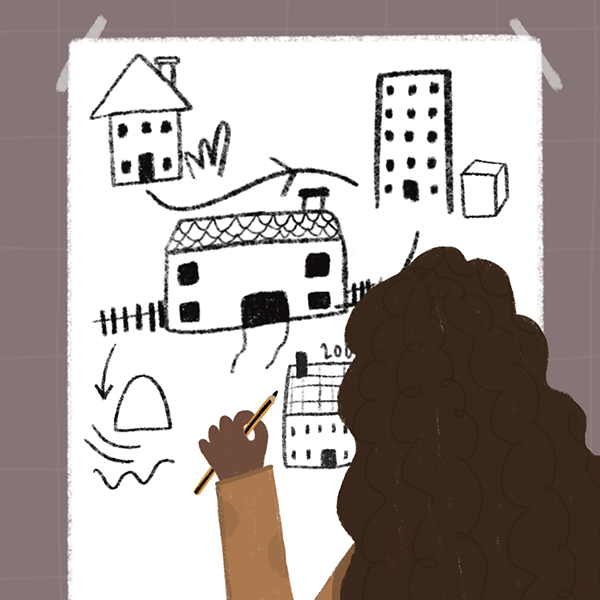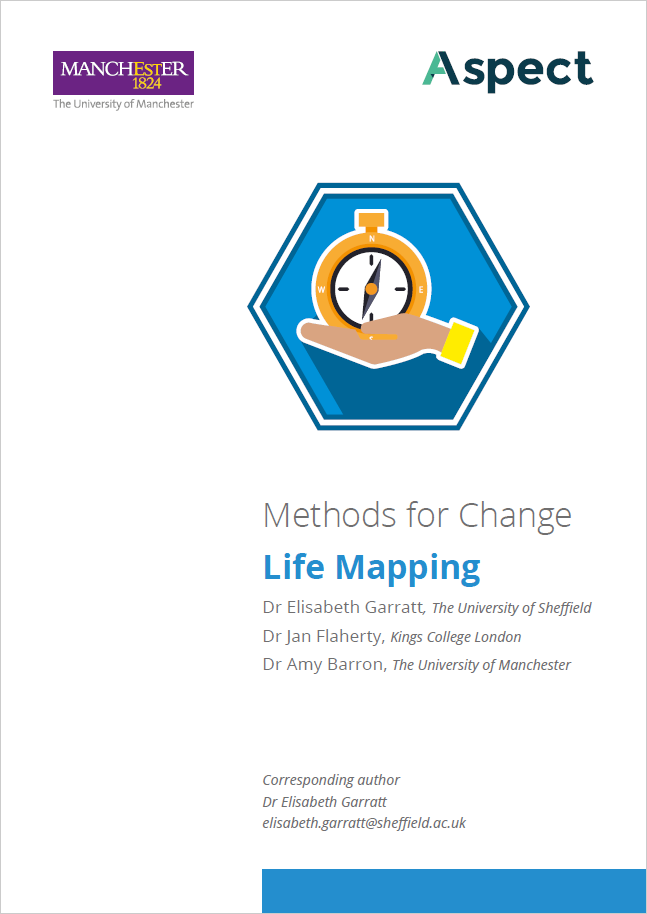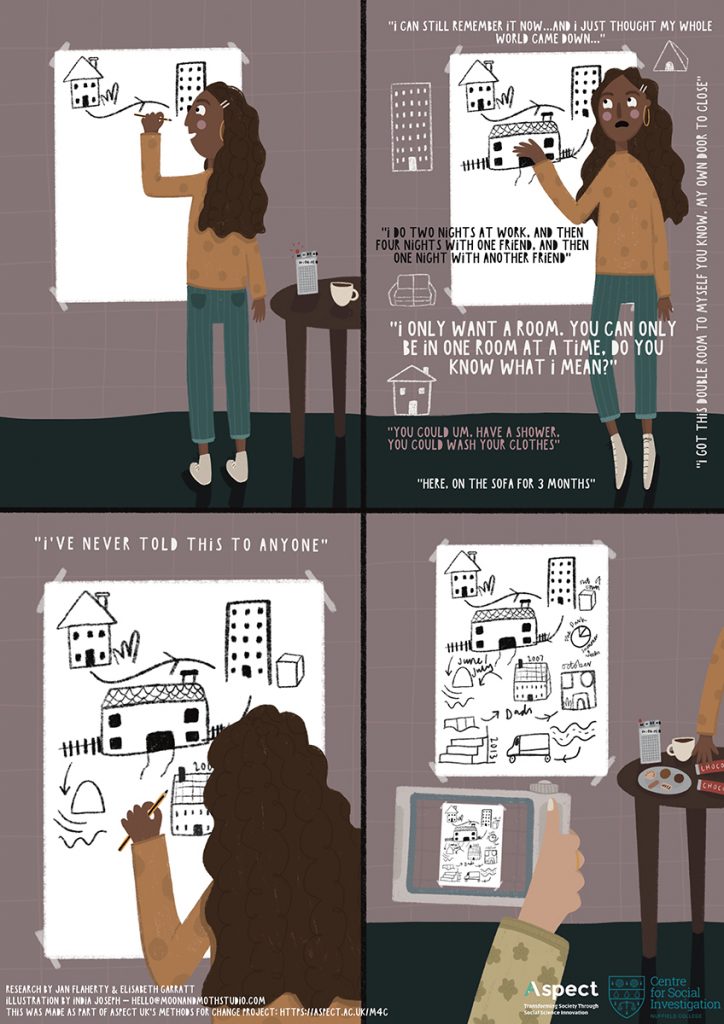Research Method: Life Mapping
Life Mapping is a qualitative narrative visual method that involves following a person’s life over a specified time period, from a point in the past through to the present day. The researcher asks the participant open-ended questions about their life history while the participant uses pens and paper to draw or ‘map’ significant moments in their life in relation to the topic being explored.
For example, if homelessness were to be explored, participants who had experienced homelessness might be asked to draw the first place they remember living in, up until the present day. The researcher would then use the participants’ drawings as a prompt for further questions, developing a rich personal account of an individual’s life. Life Mapping therefore encourages the participant to draw their memories, with the participant’s own drawings assisting the participant and researcher to talk together about these moments in space and time. The visualisation within the Life Mapping method is about the participant’s own drawing as a process that aids in the exploration of emotions and memory about certain places and times across a life-course. The flexible and interpretive nature of the visual component means a range of different life maps can be created. While some participants may draw a line, which rises and falls at different moments to depict their life events or emotional journey; others may create detailed sketches of buildings or places. While some may present something akin to a flow diagram; others might draw abstract shapes to represent different places. These unique interpretations can shed light on different experiences, provide insight into how specific services might be improved, and highlight what matters to individuals. This versatile method can be used to understand a person’s entire life, or a particular period in their life, in relation to a particular topic or issue. While Life Mapping is most often used to explore the past through to the present, future oriented reflections can also be incorporated.
You can find all the research outputs from the Methods for Change series here







